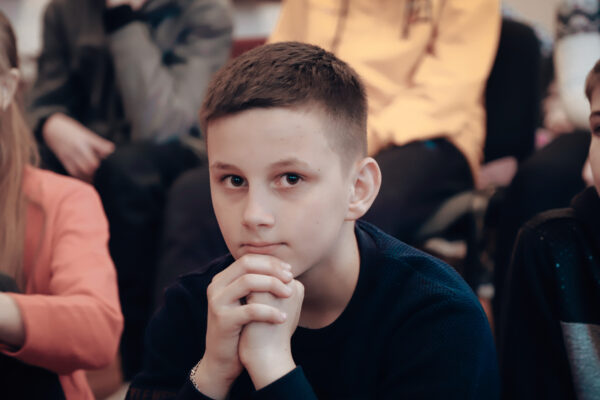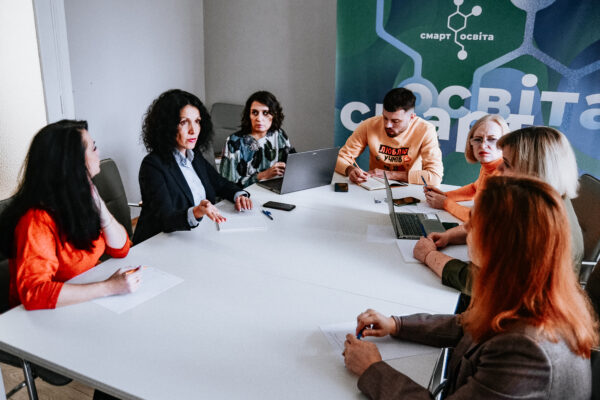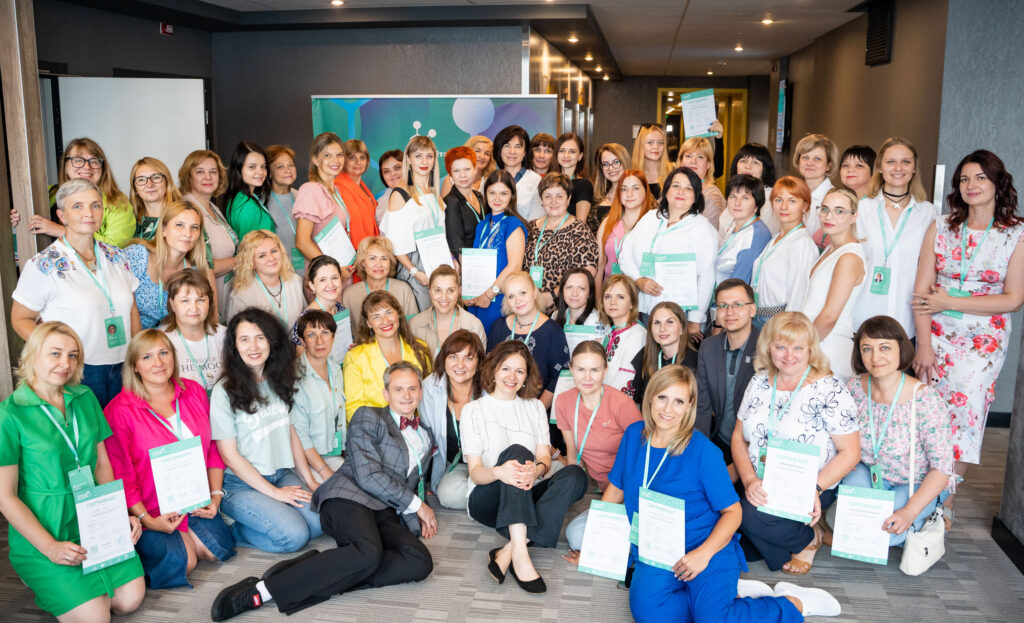

At the beginning of August 49 teachers attended a five-day training from “Smart Osvita” where they learned the methods and tools for writing skills for students.
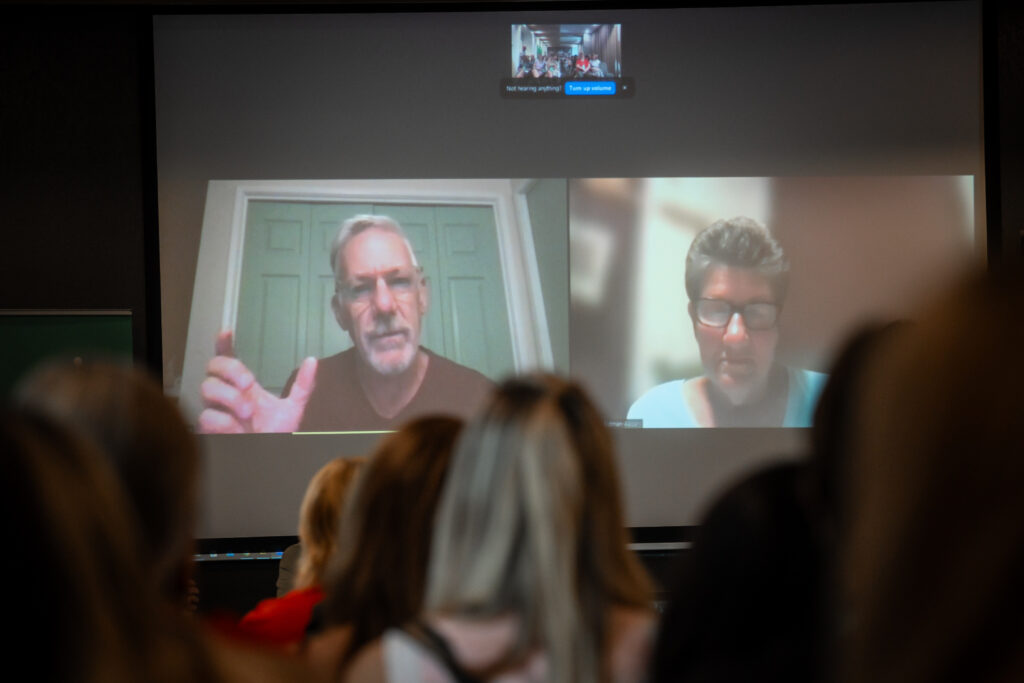
The participants were welcomed by Tom Fox, former director of National Writing Project and professor emeritus of English at the University of California, and Elyse Eidman-Aadahl, executive director of National Writing Project (till 2023). They stressed the importance of the project and wished the participants a fruitful training. Then, the head of “Smart Osvita” Halyna Tytysh told the participants that this project has been a big dream of hers and her team:
This project has such a long history that sometimes I think it has been waiting for it to appear. Because the American component of the training was supposed to start on February 24, 2022. But of course, nothing started on that day. Now, we do not have the latest data on the students’ writing skills, but the project hasn’t become less important. We aim to improve the students’ skills at expressing their opinions in writing and increasing the level of reading literacy. And we understand that the most efficient way to do this is to change the approach to teaching writing in schools, to provide the teachers with the knowledge, methods, skills, and materials for efficient teaching writing.
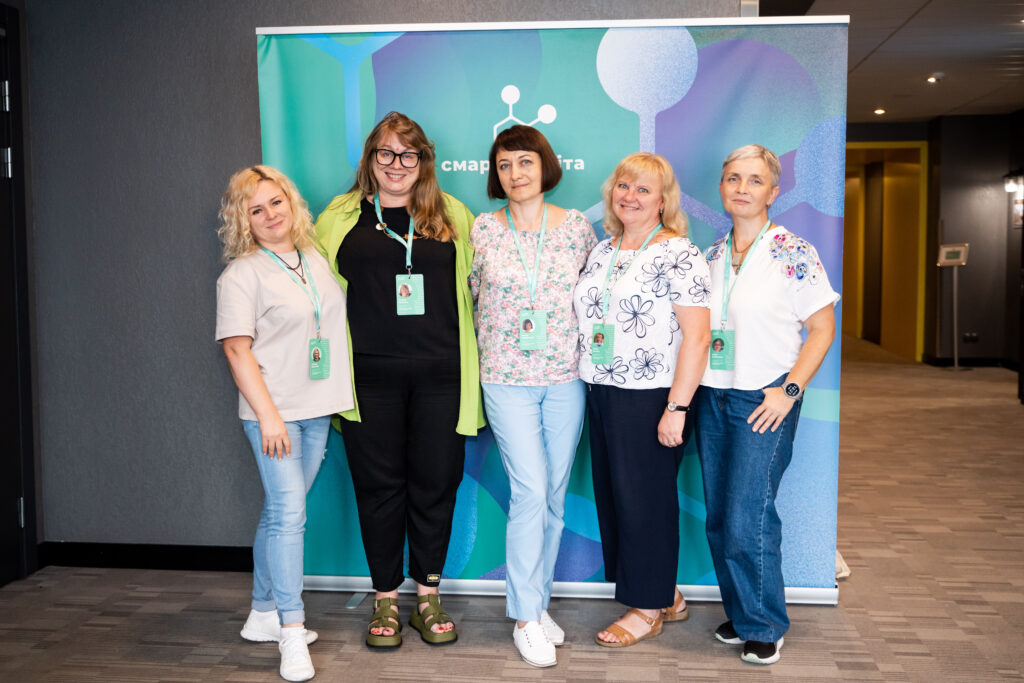
So, for five days, teachers received unique knowledge, useful information and a detailed work plan for the developed methodology thanks to our trainers: Halyna Tytysh, Tetyana Vakulenko, Vasyl Tereshchenko, Tetyana Stus, Maria Tytarenko, Kateryna Molodyk, Tetyana Baydachenko, Oksana Shunevych, Maria Blazhko, Iryna Kalitovska, Lidia Povoroznyuk and Halyna Kalyuzhna.
On the first day, the participants met each other and learned about the activities of “Smart Osvita”. They also discussed the need to implement new methods in Ukrainian schools, as the current knowledge does not enable the students to write essays at the NMT or EIA. Based on PISA results, the participants learned about the modern challenges and development of mindful reading and reading literacy for Ukrainian students from Tetyana Vakulenko, director of the Ukrainian Centre for Quality of Education Assessment, and her deputy, Vasyl Tereshchenko.
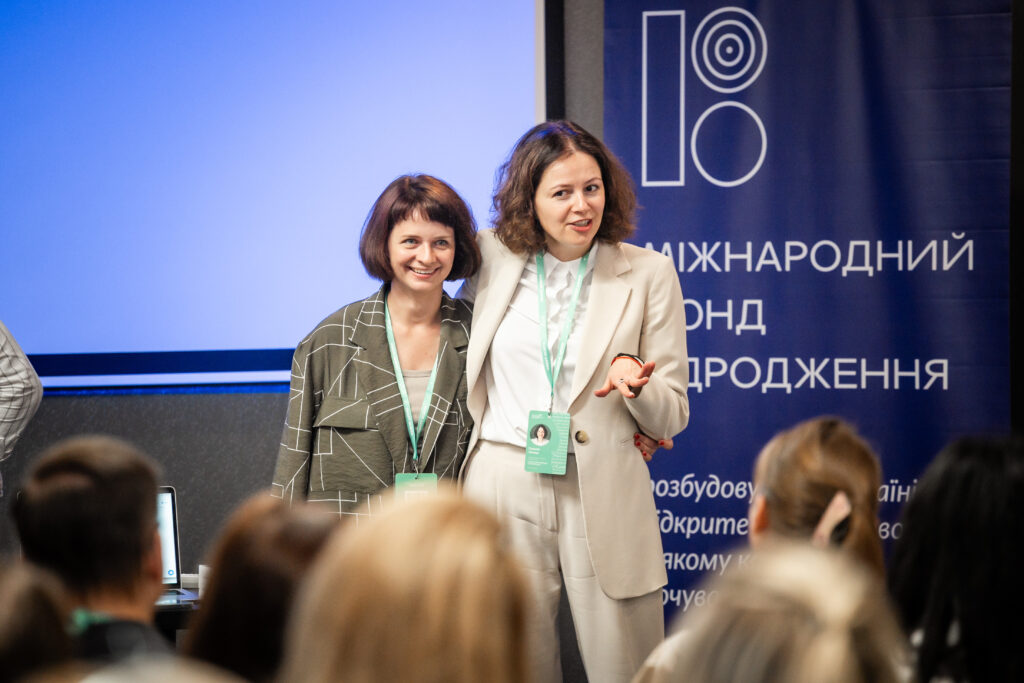
Also on this day, we started working on the first module of the “National Project: Writing an Essay”, a Procedural approach to writing, under the supervision of Smart Osvita’s head, Halyna Tytysh, and our training specialist Kateryna Molodyk.
We finished the day with Tetyana Stus, poetess, author of children’s books, head of the children’s reading lab “BaraBooka” of “SASU”. During the workshop the writers-pedagogues dived deep into the age psychology in the context of creative writing and implemented the knowledge in practice.
And then we wrote, rewrote and wrote again for the next days of the training within the “National project: Writing an Essay”. Our trainers explained the types of essays and their objectives to the trainees, namely, we profoundly analyzed:
- different types of essays
- a text chart, its structure
- sentence templates for writing commentaries
- a claim and how it is different from arguments
- how to combine all structural components into an argumentative text
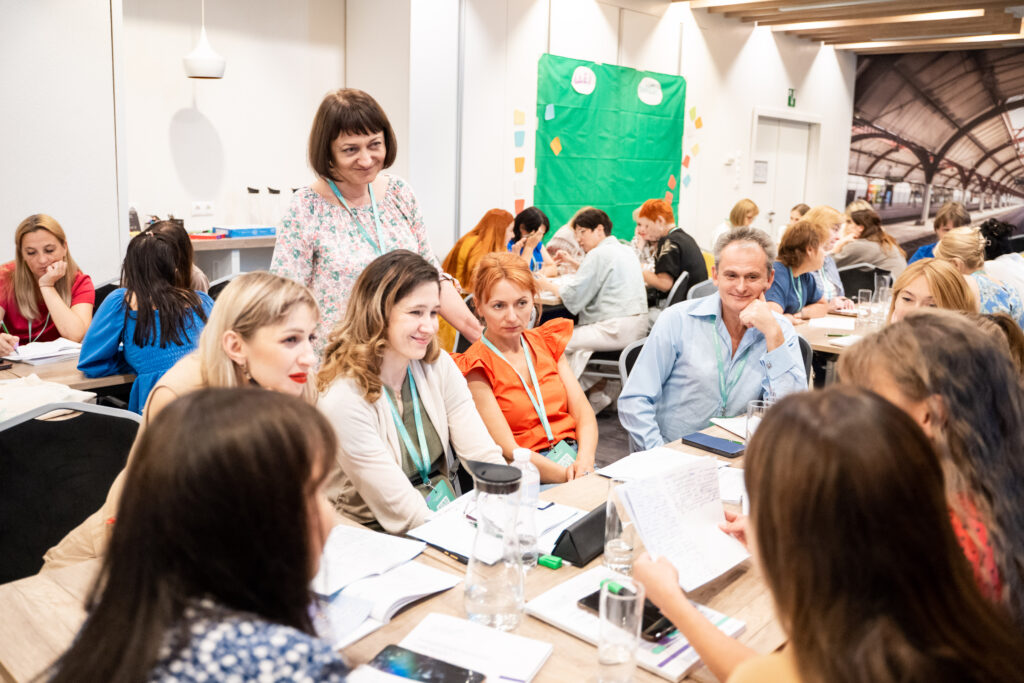
According to the teachers they themselves became students and understood that it is important to hear one’s own voice, to record one’s opinions, to try to write freely and not to be afraid to go beyond the standard boundaries and habits. Some of the teachers admitted that they are afraid to reread their own texts and to rewrite them, and during the training they discovered that it is actually not so scary.
At the end of each day the participants had a reflection and summary: “I am such a rich person now, because I know that I can write cool texts,” said one of the participants.
Maria Tytarenko was the headliner of the workshop “Creative Writing”. Maria has a lot of experience in essayism, journalism, media research, she is a member of PEN Ukraine, PhD in social communication, a Fulbright scholar (2008–2009) and a university teacher. Thanks to her experience the participants of the training discussed in detail what is “lateral (creative) thinking”: its concept, techniques, principles, methods, and exercises for self-development:
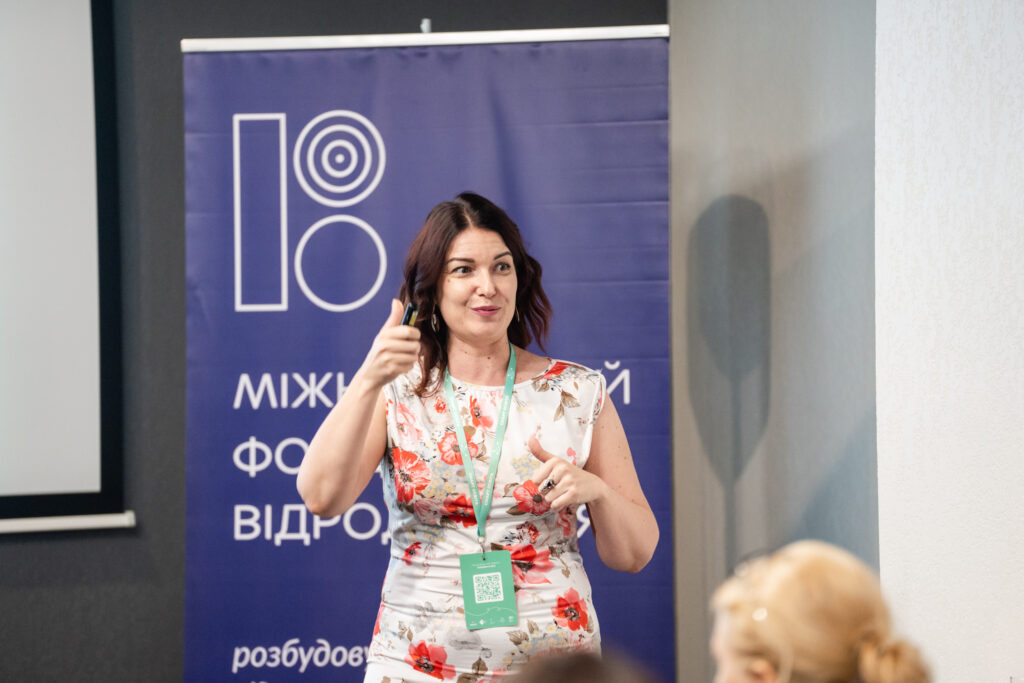
Creative thinking could be developed by everyone, and for this you do not necessarily need to have inspiration. Because creative thinking can be trained, the same as logical, by using various methods and exercises.
According to the trainer, the main thing in writing is not to be afraid and to find one’s own unique and creative approach to writing. For this people need to “write it off”, that is to write a lot. The trainer also recommends offering children to create texts not in their own name, but in the name of an unusual creature, for example, a picture on the wall, a cactus in a room: “Your writing must be unique, just like your fingerprints,” says Maria.
Students should be reminded that things don’t always work well from the first sheet. To write a good text you need time:
The main thing is to allow the children to experiment and to make mistakes. Explain to them that the text is not some kind of a deity, it can be rewritten, corrected, written from scratch. Our language is flexible, and we can work with it in different ways,” says the trainer.
The training finished with an autograph session “Not muses, but muscles. 50 exercises in creative writing”, whose author is Maria Tytarenko.

After the training almost 50 educators will implement the received knowledge and methods in their classes, so that their students will learn to write essays and develop reading literacy.
And what did the teachers think about this training and how they benefited from it? We are sharing their feedback:
Until today the word essay caused some concern and confusion. After the training all the puzzle pieces started to fit into one image. Maybe it is not so bright yet, but it is interesting and full of new emotions. Freewriting, free-ish writing, formal essay, these terms now have new meanings which are interesting, colourful, creative, just like the trainers who worked with us. I am eager to share the knowledge and the skills I received! I am looking forward to meeting my students to show them the new world of essay, just like the project trainers did it for us. I am sincerely grateful for their patience and persistence, professionalism, and empathy! I am confident that under their supervision the course will be properly piloted, and then will make it triumphantly to the school curriculum, – says Valentyna Voloshyna, training participant.
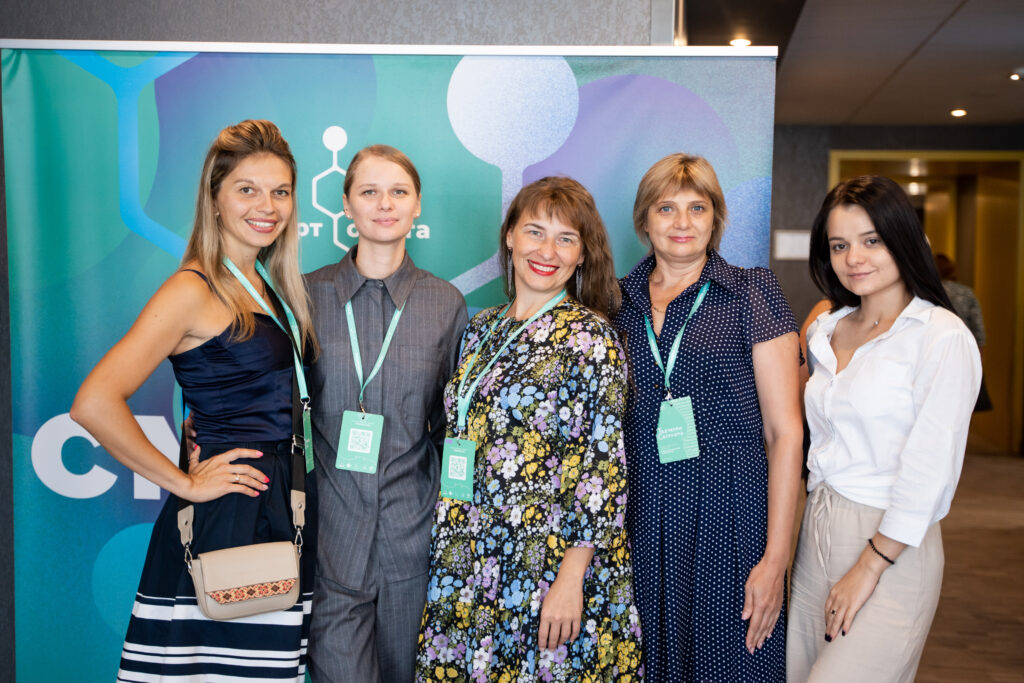
My notebook is almost full 😉. I have taken many notes. I greatly benefited from plunging into the amazing and vast world of the tools and the writing process. I was coming to the project thinking that I love writing essays, and I would like my students to also enjoy it. Now I know of many tools and will soon start practising with the students. This makes me confident that I will succeed in making them fall in love with writing. Or at least to start developing it. My being here is another proof that I have a real love for words. And this is what will make me special. I use essay writing practice with my primary school students, and secondary school, where I teach it now too. Today I understood that everyone is special. Everyone has their special story and my opinion, my writing is really valuable. For this I am grateful to the team of the authors, trainers and colleagues, – Tetyana Sushko, trainee.
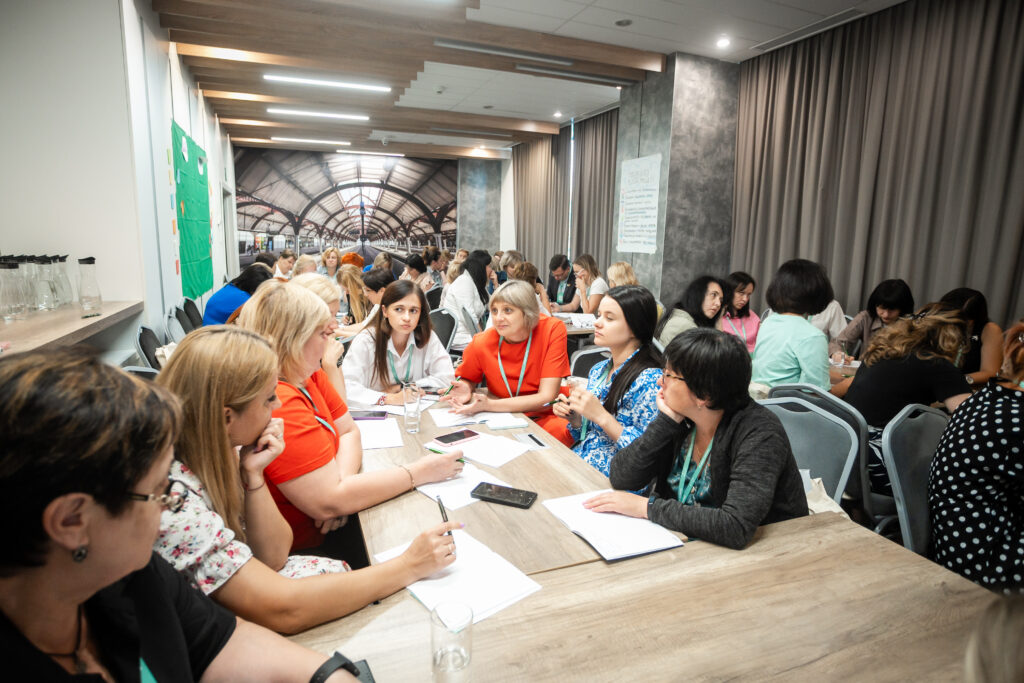
I like the practical setup of the training. To transform into a student and to try these exercises helped me to better understand what it feels like to be a child. Module Four [Combining evidence and claim] was very important to understand. Although I personally was really impressed by Module Five [Atwood Table. Joining in the ongoing conversation] and Atwood Table technique,” this metaphor is very relevant. Once again, I would like to thank all the organizers and speakers of the project. Even though we worked hard, still it was comfortable. Of course, there was a lot of information, and we can’t keep all of it in our memory. But I think we will succeed, – said Dmytro Kiyashko.
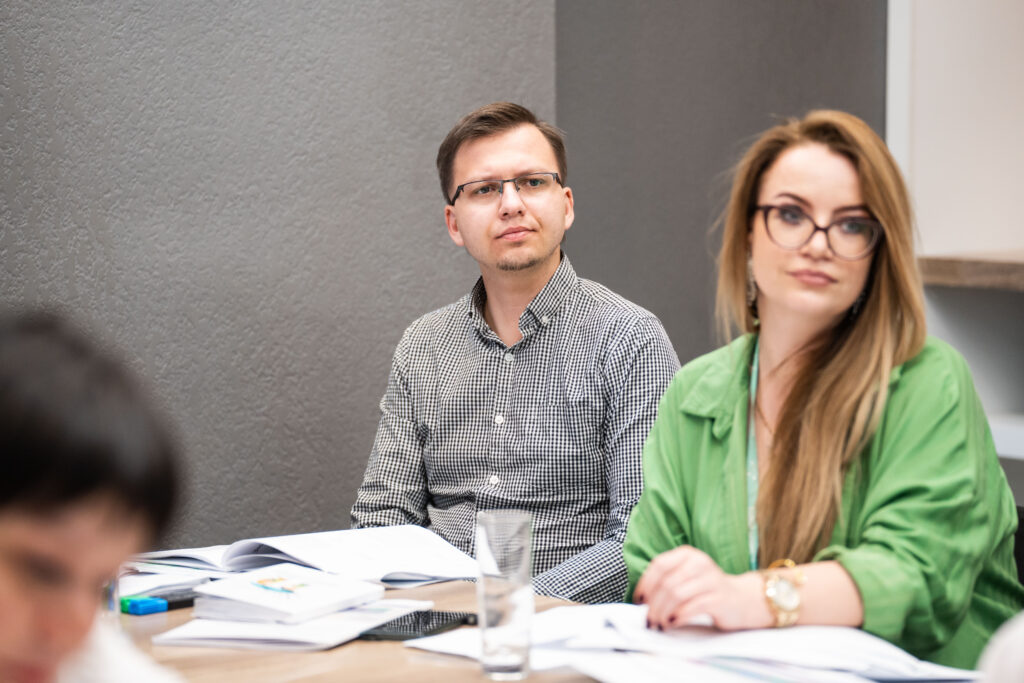
It was difficult to formulate the claim, I always wanted to write it as a rhetorical question. I cannot say that something was more interesting or less interesting. I liked everything, as each part of the training was organic, logical, and properly structured. It was good to work with different trainers, to hear different thoughts. The trainers supported each other, they worked like a team. It was important that we could practise a lot, ask questions and receive answers. When it was necessary, the trainers always came one step back, and explained something again. The meeting at the beginning with T. Vakulenko and V. Tereshchenko was a good introduction to why we need this course (practical component), “the cherry on the cake” was the meeting with Tetyana Stus and Maria Tytarenko, – says Nataliya Vlasyk.
At the end of the training the participants received their certificates and are now preparing for the new academic year in their schools, and we are preparing for the follow-up to the pilot of the project. Because from September till May educators who participated in the training will teach their students essay writing according to the project methodology.
You can find more teaching writing resources and methods at the website of the project.
“National Project: Writing an Essay” is implemented by “Smart Osvita” with the support of Grammarly, National Writing Project, Theirworld and Global Business Coalition for Education.
The article was written within training of the teachers for the “National project: writing an essay” which is implemented with the support of the International Renaissance Foundation.
The project is implemented by “Smart Osvita” NGO within the Program for engagement in civic activities “ENGAGE” (Enhance Non–Governmental Actors and Grassroots Engagement) financed by United States Agency for International Development (USAID) and implemented by Pact in Ukraine. The content of the project is exclusive responsibility of Pact and their partners and does not necessarily reflect the views of USAID or the US government.


